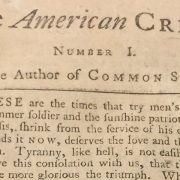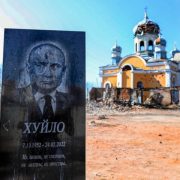The real global crisis: China’s conundrum with Taiwan’s new president
The re-election of the serving president of Taiwan, Madame Cai Yingwen, opens an extremely delicate time in the region as Chinese fear her strong anti-Beijing rhetoric will not stop in the following weeks and months and might lead to wider escalation.
Cai campaigned mainly against Beijing’s crackdown of protests in Hong Kong. She maintained that if Taiwan were to accept Beijing’s offer of “one China two systems” Taiwan would lose her freedom and democracy. Taiwan is de facto independent, but it is formally part of one China. Cai’s Democratic Progressive Party (DPP) has been stressing for years that Taiwan’s history is actually very different from that of Mainland China and in it raised the possibility to call a referendum to declare the formal independence of the island.
Beijing fears that if Taiwan were to announce its formal independence it would incite more pro-independence movements in China. The contagion could start with Hong Kong, mired in protests since the early summer, and also spread inland. The western region of Xinjiang or Tibet have old independentist movements and make up for about a third of Chinese territory although the local ethnic groups all together make up about 1% of the total Chinese population.
Beijing announced it would oppose all Taiwan’s attempts to move for formal independence, going as far as threatening war.
The internal situation in China is in fact extremely complicated. The vast majority of the Chinese population, comprised of ethnic Han (some 95% of the total), is quite nationalistic. It might bitterly oppose attempts to break away from the Mainland, and would see Beijing’s leaders “condoning splittist attempts” of Taiwan, or other provinces, as a betrayal of the grand nationalist cause. The communist party came to power in 1949 claiming to be more patriotic than the nationalist rival KMT.
Yet it is also clear that if China were to move with force against Taiwan, in case of a declaration of independence, things could easily escalate with the USA, and even Japan, feeling a hard-pressed need to intervene in one way or another.
China’s president Xi Jinping is then in a very difficult conundrum, also because of a large opposition within the party. Here many blame him for the anti-corruption campaign which deprived millions of officials of money and power.
If Xi is too tough with Taiwan, he can start an escalation, and people in the party can blame him for leading the country to war. If he is too soft, he can also be blamed for having surrendered Taiwan to its enemies. He should then find a very difficult middle ground.
Xi proved in Hong Kong he could find a way to control the situation without deploying the troops and thus avoiding the bloodshed of the Tiananmen crackdown in 1989. But in Taiwan it could be even more difficult.
Hong Kong is firmly under China’s control, with authority over the local police, bureaucracy and upper class. Taiwan is conversely totally independent, although parts of the population are in favor of a peaceful re-unification with the Mainland. Beijing might mobilize those people to pressure Cai against any hasty move.
The US at the moment also doesn’t appear to want any rush to confrontation between Beijing and Taibei. In the next few days US and China should sign a first mini commercial agreement that would put off a vast trade and cold war between the two superpowers. US president Donald Trump fears that a trade war could start an economic downturn and recession that would dim his prospects for re-election in November.
However, also for these reasons, some of Trump’s opposition in America, who are also strongly anti Chinese communist, might support a surge of tension with China. This would serve their ideal and could help stem Trump’s re-election.
Moreover, China feels already under siege. The recent American tension with Iran involves also China. The crisis could bring Teheran to improve ties with Washington or increase tension in the region up to start a new war. In either case China’s Belt and Road Initiative (BRI,) whose southern route ran through Iran, would be thwarted or cut. China’s only land route would then go through Russia.
Most importantly there is the position of president Cai. She might fear that if she cools down the present rhetoric and mobilization, Beijing could make further inroads in Taiwan out of the international limelight and eventually gain control of the civil society. Already many local tycoons, whose families were originally from Mainland China, are supportive of reunification with the Beijing.
Her political calculus could be that she needs to press ahead with her pro-independence agenda banking on the present international attention on the island.
In all of this there is also a Vatican angle. The Holy See is improving relations with China but it still maintaining diplomatic ties with Taiwan. So far, both China and the Holy See didn’t want to upset public opinion in Taiwan. It is unclear whether this present arrangement could change.





